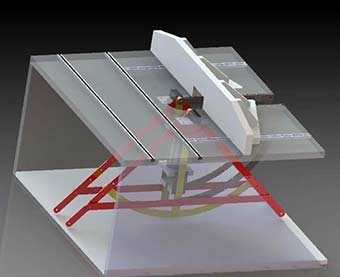The Final Project Description
The Router Table or "mini wood shaper" is a very useful woodworking tool. One of the main functions is to "shape" the borders in a way that CNC machine can't or is very improductive doing it. Another important use is the ability to easily make many type of joints, but the list of productive working possibility is long. Many are the bits you can mount on it, from simple end mill to custom shaped cutters to Bearing Router Cutters. Safety and precision can be implemented with many accessories, there is a big offer in the USA market for customization tool an accessory for the router table. There is not a native electronic tool on the market.
"Rotala" project is an evolution of the classic Router Tables. Electronic control of the fence movement and of the height of the mill will ensure better precision versatility and performance. The ability to "rotate" both the table and the router axe will offer much more versatility allowing different border shape with the same mill. The rotation for the moment will be manual with angle digitally displayied. Future customization and developement could be the automatic inclination and automatic feed of the wood piece to make a never seen CNC Strip Planking border shaper for canoes, kayak and small boats !
"Rotala"
Electronic Router Table
Updates
The Market
are very heavy, very powerful and very expensive ( >800kg, >5Kw, > 20k $) some of the most international known brands are SCM and Martin.
Materials 19-05-2015
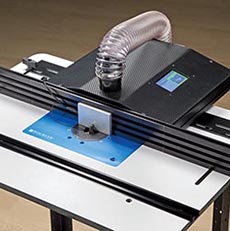

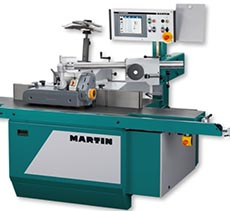
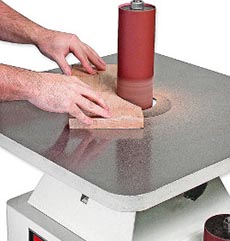
More Informations 20-05-2015
W.I.P more information on the old page
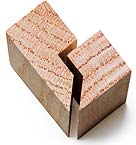
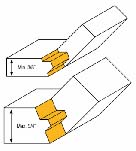
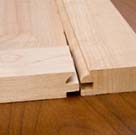
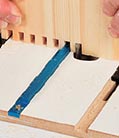
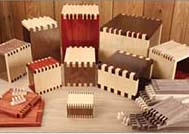

Questions & Answers
What will it do?
The Router Table or "mini wood shaper" is a very useful woodworking tool. One of the main functions is to "shape" the borders in a way that CNC machine can't or is very improductive doing it. Another important use is the ability to easily make many type of joints, but the list of productive working possibility is long. Many are the bits you can mount on it, from simple end mill to custom shaped cutters, to Bearing Router Cutters. Safety and precision can be implemented with many accessories, there is a big offer in the USA market for customization tool an accessory for the router table.
Rotala project is an evolution of the classic Router Tables. Electronic control of the fence movement and of the height of the mill will ensure better precision versatility and performance. The ability to "rotate" both the table and the router axe will offer much more versatility allowing different border shape with the same mill. The rotation for the moment will be manual with angle digitally displayied. Future customization and developement could be the automatic inclination and automatic feed of the wood piece to make a never seen CNC Strip Planking border shaper for canoes, kayak and small boats !
Who's done what beforehand?
There is not a native electronic router table on the market and not a tool with inclination capability apart the DIY projects. Some Aftermarket accesories are sold in the USA like Ready2Rout Electronic Fence Positioner (600 USD) and the Ready2Lift router height controller (630 USD) or The PowerLift is another exemple (390 USD). None of them has the inclination control.
What materials and components will be required?
The structure and mechanics will be metal made, some parts will be commissioned to a Metal Laser cutting service (quoted 80 euros for all metal part, less if only the goniometric structure is laser cutted), the others will be FabLab made with a drill press and grinder from simple metal bars locally available (quoted 20 euros). Wood (MDF or plywood) for the container structure and the table, some HDPE for the spindle holder and some Teflon for the sliders for a tatal cost of 140-160 euros.
Electronics will use self my made Fabduino, 4x20 LCD Display, 2 nema 23 stepper motors, pololu stepper drivers, an encoder, 12v power supply, the total electronic estimated cost should be in the 40-50 euros range excluded the two nema 23 motors (50 euro), water cooled electronic spindle with inverter will cost other 300 euros (it's mandatory the ER20 collets capability).
Where will they come from?
All the structure will be Km 0 available, the electronics will have the same source we used for the Fab Academy materials, (Digikey or Web source)
How much will it cost?
A total cost of 250-280 euro is estimated (with no router), 140-160 euro for the structure, 100 euro for the electronic components, the water cooled electronic spindle with inverter wil cost 290 euro.
What parts and systems will be made?
Only Pololu drivers will be bought and some part of the structure will be commisioned to a metal laser cut service, everything else will be FabLab made.
What processes will be used?
From 3D desing to metal welding ..... The project will need almost the knowlege of all the assignments of the Fab Academy.
What tasks need to be completed?
Many refinement to the software control, all the metal working as to be done.
What questions need to be answered?
The use of the Gestalt nodes in the Mechanical Design and Machine design opened a new perspective to this project, the hardware and software implementation showed unlimited possibility apart my programming inability :-) ... for the moment :-)
What is the schedule?
To have all the electronic ready for the 10 of June and the mechanics for the 24 of June, software implementations will follow during the summer and maybe more (much).
24 June Udate Well, I was a litle optimistic, the basic mechanical and electronics feature worked, but many refinements and new parts are needed. The new schedule is to have machine completely working for the end of july which is realistic, then all the project need a complete design refinements to add building tolerance, study and document a building instruction process and a long field test. Six month it's a minumun of time to achieve this goal, this I hope will go parallel with a Kickstart campaign.
For all the future development follow: The Rotala Project Blog
How will it be evaluated?
The goal is to have a performing semi-professional woodworking tool. The working capabilities, performance and working safety conditions will be the parameters.
Notes aboutes this project
Some considerations about the "Rotala" project:
Rotala project it's hevyweight project for the Fab Academy standards, the completed project is in the "hundreds of dollars" range and not in the "10 of dollars" as suggested, but only the electronic parts budget will be considered a "Fab Academy" budget. The request that the project must be Fabbable is mostly satisfied except for the metal laser cuts that will be outsourced. IMHO the metal laser cut give a great degree of preedom to many projet and is mostly outsourced even in many large industrial production, it's not very expensive and quite easy to find nearby any city. A collaboration between Fablab and Metal Laser Cut Services should not be very difficult.
